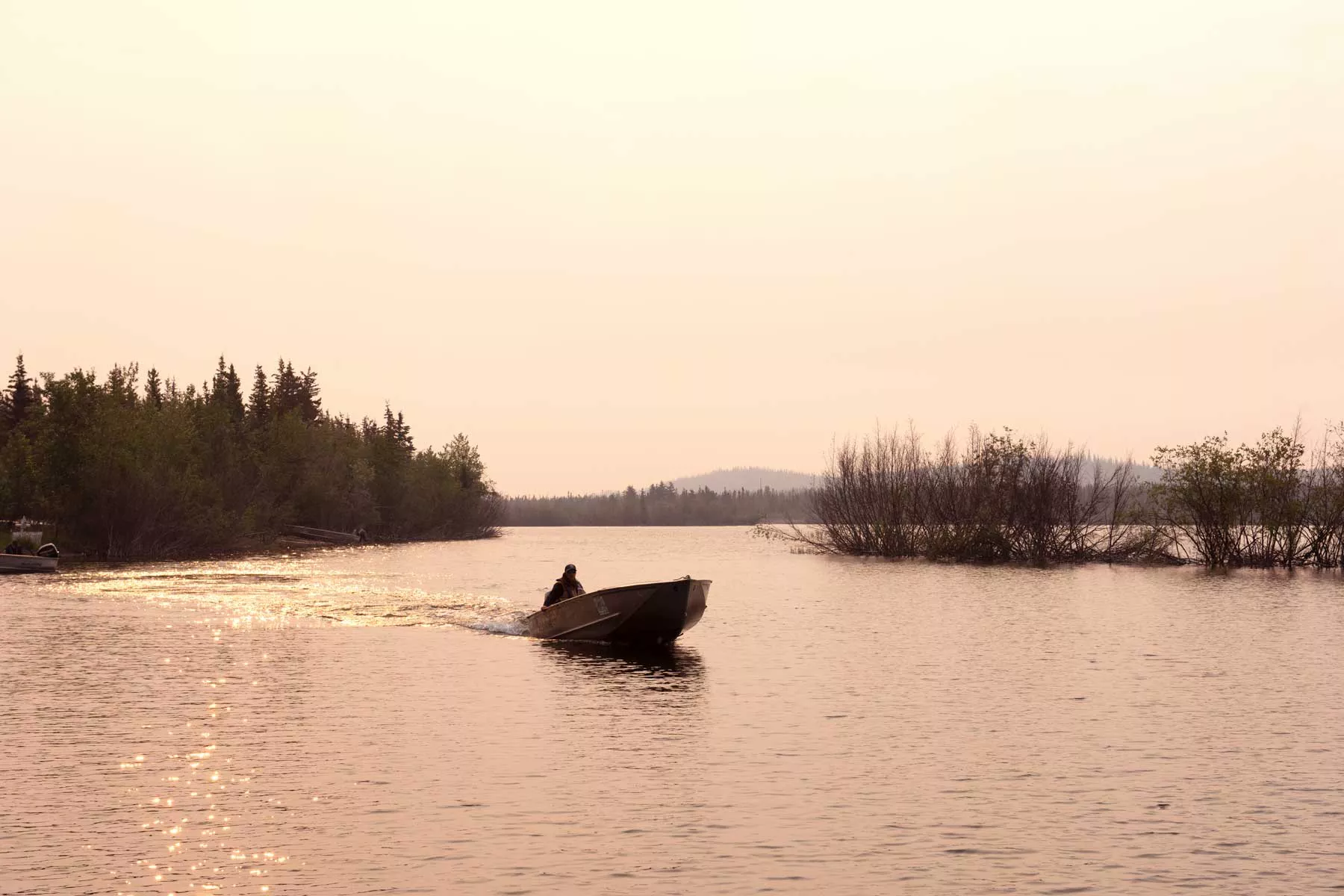Summary
Exploring the Sacred Ground of Thaidene Nene in Canada’s Northwest Territories
This wild, pristine corner of Canada’s Northwest Territories is considered sacred ground by the Indigenous people who are stewards of the land.
You either love the North or you don’t. I love the North and always have. Since I was young, I’ve been magnetized by it, compass-like. My inner needle points to where the roads end—and then beyond. My adventures include paddling solo from my home, on the Leech Lake Reservation in Minnesota, 250 miles north to Rainy Lake. I’ve taken weeks-long canoe trips with my brother and friends on the Berens and Bloodvein rivers, which flow from Ontario northwest into Lake Winnipeg. In a fit of excitement, I traveled last July as far north from Minnesota as Guadalajara is south: to Canada’s newest national park, Thaidene Néné, in the Northwest Territories.
Sacred Ground of Thaidene Nene
Thaidene Néné National Park Reserve encompasses more than 5,400 square miles on the eastern side of Great Slave Lake, the deepest lake in North America. It is shockingly remote. The park is contained within the Thaidene Néné Indigenous Protected Area. All of this land—once threatened by diamond and uranium mining—is now safe from development and is administered and managed by the Łutsël K’é Dene First Nation, the government of the Northwest Territories, Parks Canada, and other Indigenous governments.
Journey to Yellowknife
I don’t normally like flying, but I appreciated the flight from Vancouver to Yellowknife. In June and much of July, it doesn’t get truly dark on the 62nd parallel. As I glanced out the window, I marveled at the seemingly endless lakes and boreal forest. The farther north I traveled, the smaller and more patchy the trees became.
Yellowknife struck me as both strange and alluring. With a population of around 43,000, half of those residents live in Yellowknife, which was settled during the gold rush in the 1930s. One would not expect diversity in a city so far north, yet about 25 percent of the population is First Nations, Métis, or Inuit, speaking nearly 70 languages. From the moment I arrived, I felt a sense of belonging, a comforting notion of being part of a majority.
Exploring Thaidene Nene National Park Reserve
Time begins to lose meaning as one travels further north. After a brief overnight stay, I took a taxi across Yellowknife to the airport run by Air Tindi, which services many remote communities. The crew members and passengers were predominantly Native, reinforcing a deep connection that I cherish. As part of my adventure, I was ready to explore the stunning landscapes.
Upon arrival at Łutsël K’é, we were greeted by James Stewart, a fishing guide at Frontier Lodge. He took us to a station where musk ox meat was distributed—an example of community sharing in this remarkable region.

Unlike typical parks, Thaidene Néné is not defined by campgrounds or constructed pathways. Instead, its wildness signifies a return to what nature has always been, providing visitors with both rugged beauty and minimal interference. Arriving requires effort; however, once there, one enters a realm where the land dominates.
Fishing Experiences at Frontier Lodge
To put it simply, fishing is an integral part of the experience at the Frontier Lodge. Guests are taken by boat to explore the waters of Great Slave Lake, where the renowned trout fishing awaits. I encountered a multitude of fishing methods, from jigging to trolling, and the lake certainly lived up to its reputation for abundance.

The lodge serves as a rustic yet comfortable retreat amidst nature, with meals that truly highlight the local flavors, including a memorable evening featuring musk ox and trout prepared over a fire. Each day offers fishing trips, traditional shore lunches, and opportunities for exploration.
A Deep Connection with the Land
Throughout my stay, the raw beauty of Thaidene Néné left an imprint on my spirit. I felt small against the vast landscape yet profoundly connected to the land and its history. Conversations with local Indigenous guides revealed their deep understanding of the region, and the importance of preserving this sacred area was never far from our thoughts.

As I prepared to leave and fly back south, I reflected on the profound experiences and connections forged in this untouched wilderness. Thaidene Néné, with its majestic landscapes and rich Indigenous heritage, is a stirring reminder of the importance of preserving the world’s natural treasures.
Fishing packages at Frontier Fishing Lodge, including accommodations and guided fishing, start at $2,750 for three days.





